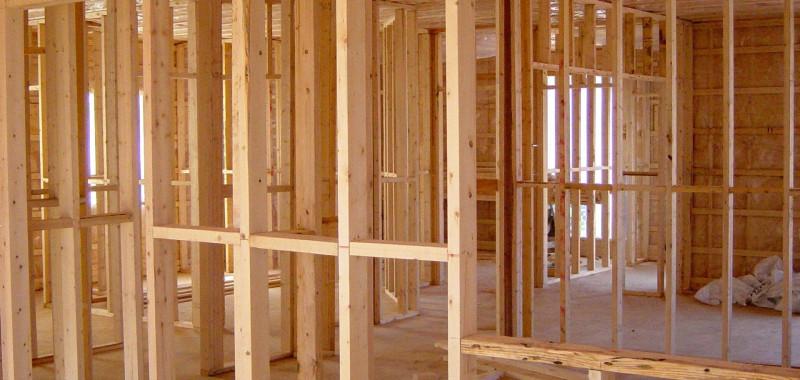
Increasing material flows along processing chains in timber industry considerably contribute to climate change. However, there is a great but unexploited potential for reduction of CO2-emissions.
The CaSCo Project
The CaSCO project, implemented on a period of 4 years (2016 – 2020) aims at the sustainable exploitation of wood resources, especially in the sectors of construction and energy, enabling for a better use of local resources and a diminution of gas emissions due to exploitation and transportation of those resources. The project initially visualizes the impact of low carbon material flows of timber products on the climate (integrated carbon footprint system). The project adressed an important but unregarded sustainability aspect, considered in public construction and procurement.
Two major goals were pursued with the project:
- The development and implementation of transnational low carbon policy instruments for the procurement of significantly low carbon timber products, aimed at participating communities (bundled by the different partners).
- Closing loops of regional added value and capitalizing of low carbon timber products by fostering their utilisation in politics, public bodies and key actors such as architects. Decision maker will therefore be provided with steering instruments to actively trigger climate friendly timber products.
The project draws up on several opinions coming from experts of EU and communal law as well as from public bodies in Germany, indicating the feasibility of the approach in implementing the existing tools in procurement. Lacks of specific information among decision makers also was an important incentive for the development and further implementation of the project. There is also an important innovative dimension to the project, since no such transnational instrument were in place before. Such an initiative, being a paneuropean issue, also gains at being developed in a transnational approach to get results applicable across borders. It also plays in a wider acceptance at European level in both politics and markets, helping to avoid insulated solutions.
The project is funded through the Interreg B Alpine Space Program, under the Low Carbon Alpine Space Priority. It gathered partners from France (AURA-EE), Italy (Parco Scientifico Technologico Per l’Ambiente ; Mountain Union of the Municipalities of Valsesia ; Environment protection agency for the Piedmont Region), Slovenia (BSC Business support centre; RASt Development agency Sinergija ; E Zavod institute), Austria (IG Kraftspendedorfer Joglland ; Regionalentwicklung Vorarlberg eGen) and Germany (Climate Alliance Klima Bundnis ; Holz von Hier gemeinnutzige GmbH), both from the public and private sector. The project represented a total cost of 2.291.187€, amongst which 1.947.509€ were provided by EU funds through ERDF grant.
Aura EE in the CaSCo Project
AURA-EE, the Energy Agency of the Auvergne-Rhône-Alpes Region in France, was a partner in the CaSCo Project. In the Auvergne-Rhône Alpes regions, the use of wood in the construction sector is an existing practice but encompasses several difficulties such as an insufficientrly structured timber and wood sector. Indeed, the fact that the wood used isn’t always localy sourced was a central point in the development of the project. It is a key sector in this Alpine Region, both for jobs creation and environmental issues.
In the AURA region, the project especially targeted:
- the demand side, through the realization of guides in relation with public procurement of timber, trainings and exchanges of experiences for public authorities. It also allowed for the development of evaluation tools for the identification, verification and supply of local resources
- the offer side, through a cooperation with local companies networks involved in the development and production of locally and sustainably produced wood
The CaSCo Prize
In the framework of the CaSCo Project was established the CaSCo Prize. It recognises outstanding construction projects in the Alpine Space by nominating both public and private institutions that procure or implement wooden buildings or urban furniture made from regional timber (buildings, park benches, bus stop shelter,…) The transportation of the wood during the whole value chain process is taken into consideration, since lower transportation distances cause lower Co2 emissions.
The prize awarded two realizations in the Auvergne Rhône Alpes Region, during the 2018 ceremony in Innsbruck: the Head Office of the Association of Municipalities of Oisans implemented by the architect Aline Duverger and “Au clair du quartier” participative housing in Grenoble by Florian Golay. Watch the small videos presenting those sucess stories here and here. You can also find a presentation of every rewarded projects here.
Outcomes of the Project
Several documents are published, aiming at capitalizing on the results of the project:
- Best practice collection on the realization of structures with woods from regional sources.
- Online presentation of SME network and low carbon timber supply source.
- Cluster study report, providing for an overview on the wood clusters in Alpine Space Regions
- CaSCO Training concept, providing a framework for capacity building and training activies in relation with the promotion of low carbon timber in Alpine Space Regions
- CaSCo guide “Contracts incorporating Low Carbon Timber” providing for recommandations and key stages
- “Climate protection & the procurement of timber from short supply chains” brochure explaining public procurement procedure of timber
- Work report on Low Carbon Timber Policies in Europe adresse the use of Green Public Procurement by public authorities
- Low Carbon timber toolkit, enabling planners and architects to better asses the sustainability of products and construction materials in the planning process
- Low Carbon timber toolkit on sustainable building certification schemes
- An overview on frame condtions for strenghtening a mutual understand about the forest and timber sector, identifiying key features with the timber value chain
Details
- Publication date
- 21 April 2023
